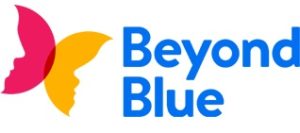Many Australians are feeling the pressure of the rising cost of living, a struggle that is taking a toll on our collective mental health. The ever-increasing cost of housing, healthcare, education, and everyday essentials have left many individuals and families grappling with financial stress, anxiety, and other mental health challenges.
Mental Health Australia launched a 2023 Report to the Nation which summarises some of the key mental health trends from the last year. The report found that more than half Australians agreed that the rising cost of living is having a major impact on their mental health.
Barriers to Accessing Mental Health Support
The cost of treatment is just one of several barriers to mental health support that Australians are facing. The most common barriers Australians reported were people feeling like they should be able to solve their situation (24%), cost or financial barriers (21%), and long wait times for appointments (13%). As practitioners, it is important to consider how we can accommodate or tailor our treatment to take this into account. One possible way to do this is integrating digital mental health resources into our practice.
Digital Mental Health: Growing Trend
Amid these challenges, we are witnessing a notable shift in how Australians are seeking support for their mental health. While traditional methods like speaking to colleagues, family, friends, and general practitioners remain prevalent, there is a rising trend in digital mental health services and apps.
According to the report, the number of Australians using digital mental health services or apps has doubled from 4% to 8% in the last year. This is a noteworthy development, as it indicates a growing acceptance and recognition of the benefits of online resources in managing mental health.
The Promise of Digital Mental Health
Digital mental health services offer several advantages that can help overcome the barriers mentioned earlier:
- Accessibility: They are available 24/7, providing immediate support when individuals need it the most.
- Affordability: Many digital mental health resources are cost-effective or even free, reducing the financial burden.
- Anonymity: Online platforms allow users to seek help discreetly, reducing the stigma often associated with mental health issues.
Using Blended Care to Help Treatment Affordability
As health practitioners, our treatment time is limited. Blended care is one way we can effectively use our time and the time of those we are treating. Some practitioners offer CBT-based treatment programs as a waitlist option, boosting skill-based awareness before treatment and expediting affordable treatment. Blended care can also be used for conjunctive treatment, for example, using an online treatment program for insomnia alongside in-person treatment for depression. There are a number of affordable online treatment programs which can seamlessly integrate into the blended care model.

MindSpot
The MindSpot Clinic is a free national service for Australian adults with stress, worry, anxiety, low mood, chronic pain, or depression. MindSpot provides mental health Screening Assessments and Treatment Courses. The Screening Assessment is a quick 20–30-minute confidential online questionnaire that provides individuals with personalised recommendations about which mental health support services and resources may be able to assist. The Mindspot are used to equip individuals with treatment strategies, tools, and techniques to address specific mental health symptoms.

This Way Up
THIS WAY UP is an Australian organisation providing online treatment, education, and research in the realm of mental health. They offer a range of low-cost online CBT programs for mental health and wellbeing challenges including tools to help people manage anxiety, depression, chronic conditions and more. Clinicians who sign up with This Way Up can prescribe the evidence-based iCBT programs for free.

Mental Health Online
Mental Health Online provides information and support for mental health concerns through their website, helping people understand and address mental health needs. The website includes a self-assessment tool and online self-help or therapist support programs. Mental Health Online offers online programs for d, general anxiety, social anxiety, obsessive compulsive disorder, panic disorder, and post-traumatic stress disorder. They also offer a ‘Made 4 Me’ tailored program, specific to the user’s needs.
Digital Mental Health Resources for Financial Stress
There are a range of digital mental health resources available to people dealing with financial stress because of the rising cost of living. The resources below provide information, peer support, telephone, and online counselling support for financial stress.

Beyond Blue
Financial Wellbeing
https://www.beyondblue.org.au/get-support/staying-well/financial-wellbeing
Beyond Blue is an Australian mental health organisation providing information and support for a range of mental health and wellbeing topics. The Beyond Blue website includes information on financial wellbeing, how financial health and mental health are linked, financial counselling, financial hardship and mental health. They also provide guides for times of financial difficulty and links to support services including the National Debt Helpline and Money Smart. Beyond Blue also provides moderated online forums where people can access peer support and discuss issues relating to mental health and wellbeing, including financial wellbeing.

Health Direct
Financial Stress and Health
https://www.healthdirect.gov.au/financial-stress
Health Direct is a national virtual public health information service, providing 24/7 information, advice and referrals for Australian health and mental health issues. Their website includes information on financial stress and health, including how financial stress impacts health, causes of financial stress, tips to deal with the impacts of financial stress, and links to help with planning, budgeting, managing money and mental health support.

Kids Helpline
Managing Your Money
https://kidshelpline.com.au/young-adults/issues/managing-your-
Kids Helpline is a free, confidential counselling service for young people aged 5-25 years, by phone, email and over the web. Their website includes information on managing money for young adults aged 18 to 25, such as tips to help individuals manage their money, make a budget, set savings goals, and explore more ways to reduce stress about money. The Kids Helpline phone, email and webchat can also provide support for young people seeking help or support for financial stress.

Lifeline
Financial Stress
https://www.lifeline.org.au/get-help/information-and-support/financial-stress/
Lifeline is a crisis support and suicide prevention service providing phone and online chat support, and information. Their website includes information on a range of issues relating to mental health and wellbeing, including financial stress, the warning signs and links to access practical and psychological support.
Read our blog ‘Digital Mental Health for Financial Stress’ to learn more about a range of digital mental health resources available to support individuals, families and businesses dealing with financial stress.







